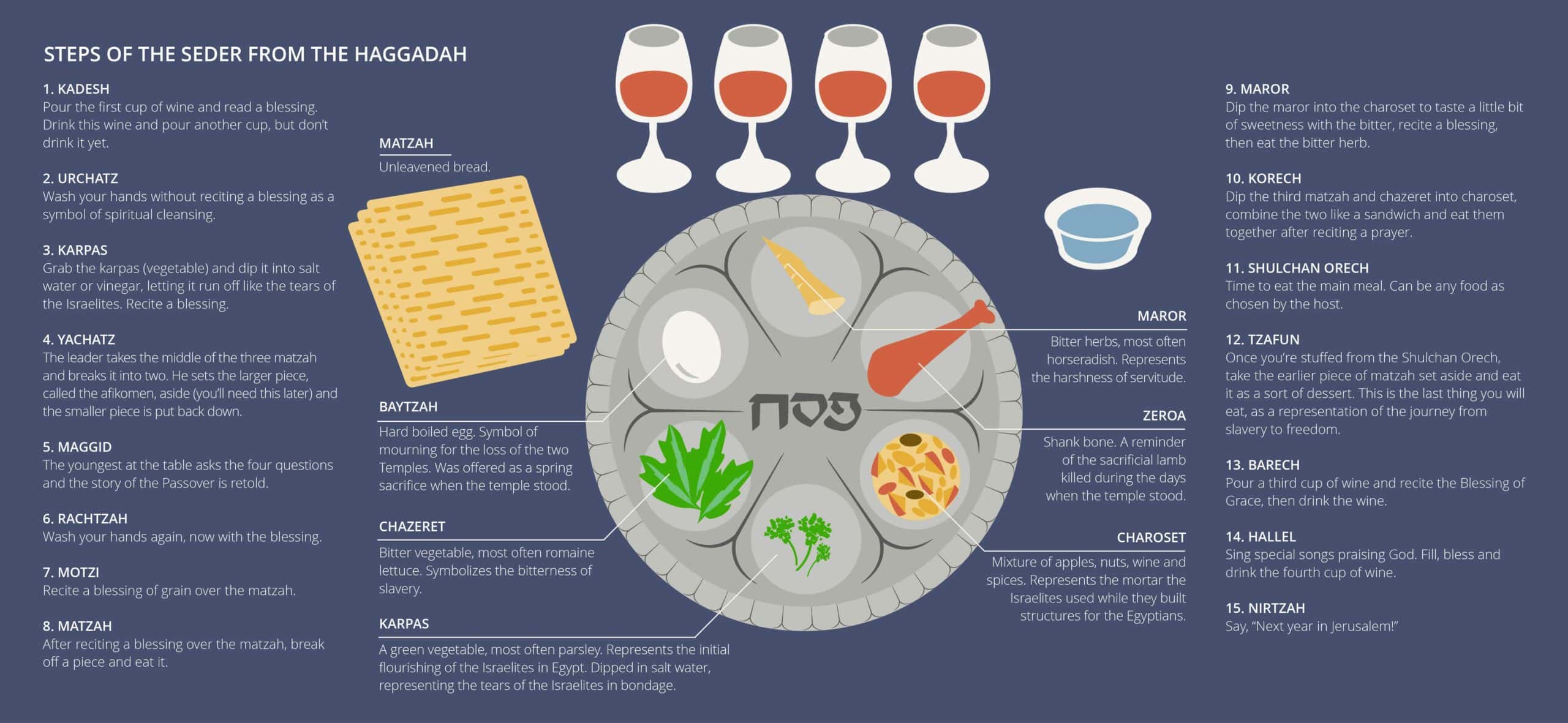Why Is Pesach Celebrated? A Joyous Journey Through Tradition
Hello joyous parents! ? As the delightful breeze of spring gently embraces our senses, a festival of profound significance blooms within the Jewish tradition, and its fragrance is none other than that of Pesach or Passover. If you’re embarking on the enlightening path to share these traditions with your children and family, you’ve come to the right place! Let’s unwrap the layers of history, learn the heartfelt reasons behind the celebration, and find out how this venerable observance is far more than just a holiday—it’s a chronicle of freedom, faith, and timeless wisdom.
Pesach, with its narrative that spans thousands of years, is steeped in the rich tapestry of Jewish identity. It’s the annual observance commemorating the liberation of the Israelites from Egyptian slavery, as recounted in the Torah, the foundational text of Judaism. This time-honored celebration is a compelling story of resilience and liberation, one that you can share with your children to instill values of courage, community, and continuity.
The Historical Roots of Passover: An Overview
Our journey into the heart of Pesach begins in the narratives of the Book of Exodus, where Moses—a figure symbolizing strength and leadership—confronts Pharaoh, the ruler of Egypt, demanding the freedom of his people. After a dramatic series of events, including the 10 plagues that besieged Egypt, Pharaoh finally relented, allowing the Israelites to depart from his land. This momentous exodus marked the beginning of a new era for the Jewish people—a transition from oppression to emancipation.
Celebrations and Customs of Pesach
The eight-day commemoration of Pesach is filled with rituals and customs that connect families and communities while aligning with the overarching themes of freedom and gratitude. One of the highlights of the festival is the Seder, a ceremonial meal that features symbolic foods, each with its own story to tell. The Matzah, unleavened bread, represents the haste with which the Israelites left Egypt, leaving no time for dough to rise. Other symbolic foods include the Maror (bitter herbs) symbolizing the bitterness of slavery, and the Charoset, a sweet mix of fruits and nuts representing the mortar used by the Israelites in their forced labor.
Educational Significance for Children: Shared Stories and Values
As festive as Pesach is, it also bears tremendous educational value for the younger minds amongst us. The Seder is a time when storytelling takes center stage, and the retelling of the Exodus story becomes a vibrant part of the celebration. Through this, children not only learn about their cultural and historical heritage but also engage with fundamental values such as the importance of freedom, the courage to stand up for one’s rights, and the power of faith and perseverance.
Integrating fun and learning, families often incorporate activities such as the Afikoman hunt, where children search for a piece of hidden matzah, an engaging tradition that enhances their experience and understanding of the holiday. In the pursuit of making this festival both meaningful and enjoyable, parents can also find creative ways to involve children in preparations, making them feel connected to the traditions and values that have been passed down through generations.
Another aspect of Pesach that children can find joy in is song and festivity. The Passover Seder includes traditional songs such as Dayenu—a tuneful recounting of the many blessings that were enough for the Israelites—and the playful Chad Gadya, which ties into the holiday’s storytelling approach. These songs and stories create a tapestry of shared experiences that resonate deeply within the family and the larger community.
The celebration of Pesach is not only about looking back; it’s a vibrant process of personal and collective reflection. It’s an opportunity to consider the freedoms we enjoy today, the struggles that have been overcome, and the journey still ahead of us. By participating in Passover, we commit to passing on these stories and values from generation to generation, thus enriching our children’s lives with a legacy of identity, belonging, and personal growth.
And the learning doesn’t have to stop with the close of the holiday! Pesach offers a springboard for discussions on modern-day issues, such as social justice and human rights. Engaging children in these conversations helps build empathy and a deep-seated understanding of the ongoing relevance of Pesach’s messages. It is these discussions, born from celebrations and stories of old, that lend the holiday its enduring legacy—a legacy that transcends mere remembrance and becomes a pillar of identity and ethical living.
In sharing the exuberance of Pesach with our little ones, we give them the gifts of history, tradition, and a deep-rooted sense of where they come from. So, let the celebration begin and the stories unfold, as we embrace Passover with joy, togetherness, and the promise of continuity. With hearts full of gratitude and homes filled with warmth, the narrative of freedom rings out once more, inviting us all to participate in its timeless dance.
Be sure to stay tuned for the continuation of this magical exploration into the heart of Pesach, where we’ll delve into specific traditions, provide engaging educational resources for children, and share ways to make your family’s Passover experience both heartwarming and unforgettable. Happy Passover!

5 Things Parents Should Know in Preparing for Pesach
Preparing for Pesach is a journey that involves the entire family. Here are five key things parents should know to make the celebration meaningful and enjoyable.
1. Understanding the Timetable and Prep Work
Passover preparation begins well before the Seder night. It includes a thorough cleaning of the house to remove chametz (leavened products), which are forbidden during Pesach. Starting the process early helps reduce stress and allows for a more relaxed atmosphere leading into the holiday. Take this opportunity to involve your children and explain why this cleansing ritual is so significant.
2. Planning the Seder Meal and Haggadah
The Seder meal is the centerpiece of the celebration. Planning your meal in advance, which includes the Seder plate and other traditional dishes, ensures a seamless experience. Choosing a Haggadah, the text recited during the Seder, that is child-friendly can help engage younger participants. Some Haggadot provide colorful illustrations and simplified narratives to captivate your children’s interest.
3. Incorporating Child-Centric Activities
Children are an integral part of Pesach, and making the holiday exciting for them is crucial. In addition to the Afikoman hunt, consider crafts or Passover-themed games. For more educational engagement, you can include age-appropriate explanations of Passover symbols and stories, possibly through interactive storytelling.
4. Emphasizing the Story of Passover
The story of Passover is a tale of liberation and faith. Sharing this story in a way that children can understand and relate to is essential. You might consider re-enacting parts of the Exodus story or using props to help bring the story to life. The goal is to make the story memorable and meaningful, so it sticks with your children long after the holiday ends.
5. Preparing for Dietary Changes
During Passover, the diet changes significantly, with an emphasis on matzah and avoiding chametz. Preparing your children for these dietary changes can involve them in the cooking process, using kid-approved Pesach recipes or creating a special treat that they only get during this time of year to build positive anticipation.
Engaging with these preparations and key points ensures that Pesach is not only a time for remembrance but also an opportunity for family bonding and joyous education. As parents, your guidance and enthusiasm for the holiday will foster a lasting appreciation for Pesach in your children’s hearts.
Stay tuned for more insights and guideposts as we continue this richly woven journey through history, tradition, and family bonding. Pesach isn’t just a single event—it’s a formative experience that shapes not only how we view the past but also how we envision and approach our future. Let’s all celebrate with mindful presence, embracing each other and the enduring lessons of our heritage.
See more great Things to Do with Kids in New Zealand here. For more information see here
Disclaimer
The articles available via our website provide general information only and we strongly urge readers to exercise caution and conduct their own thorough research and fact-checking. The information presented should not be taken as absolute truth, and, to the maximum extent permitted by law, we will not be held liable for any inaccuracies or errors in the content. It is essential for individuals to independently verify and validate the information before making any decisions or taking any actions based on the articles.




